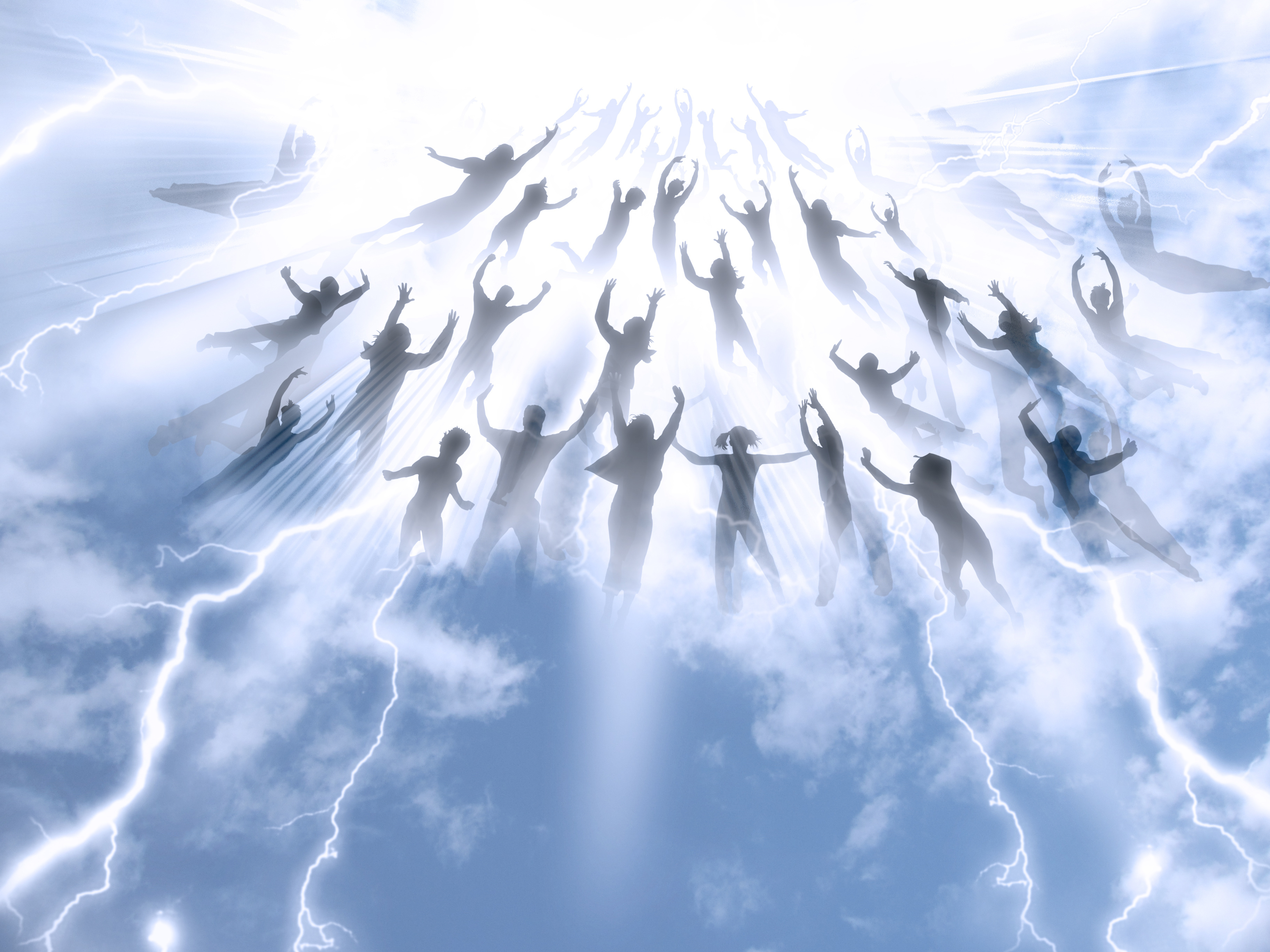1 Thessalonians 4:17, Be caught up. Do I believe in the rapture? Yes, but not as many in the Christian church teach it. For them, the resurrection of the righteous dead occurs before the great tribulation—called the pre-trib rapture.
As you probably know, the word “rapture” is from a Latin word for being “caught up” (or resurrected) as found in 1 Thess 4:17 — “Then we which are alive and remain shall be caught up together with them in the clouds to meet the Lord in the air …” Therefore, a better question to ask would be, do I believe in the resurrection of the dead? Most emphatically I do. The only question is when do I believe the resurrection will occur? As far as I can tell, there are only three obvious answers to that question: before the great tribulation (as much of the Christian church teaches), after the great tribulation, but before the wrath of Elohim is poured out on the earth (what I believe) or after the great tribulation and the wrath (which is what some believe, including some Messianics), which is called the “post trib” position.
The word “caught up” is the Greek word harpazo (Strong’s 726/TDNT 1:472) which is used 13 times in the NT (Matt 11:12; 13:19; John 6:15; 10:12,28,29; Acts 8:39; 23:10; 2 Cor 12:2,4; 1 Thess 4:15; Jude 23; Rev 12:5) and means “to seize, carry off by force, to snatch out or away.” It is found in the NT 13 times and is translated in the KJV as “catch up, take by force, catch away, pluck, catch, pull.”
Of the 13 places this word is found in the NT here are the places where its usage is analogous to that of 1 Thess 4:17—
- Acts 8:39, The Spirit of the Lord caught away Philip…
- 2 Cor 12:2,4 Paul is caught up to the third heaven/paradise in a vision …
- Rev 12:5, The child (Yeshua) is caught up unto God … This is speaking about Yeshua’s bodily resurrection after his death.
So yes, I believe in the “rapture” or more accurately, being caught up to heaven, or resurrected. The only question is the timing of the resurrection. That’s what I explain in my teaching entitled, “The Tribulation, the Great Tribulation and the Wrath of Elohim,” which you have.
When Is the Rapture or the First Resurrection and Who Will Be In It?
The Resurrection of the Dead — A Fundamental Doctrine of the Gospel
The concept of the resurrection of the dead is a fundamental biblical concept and one of the main doctrines underlying the gospel message as the writer of the Epistle to the Hebrews states:
Therefore leaving the principles of the doctrine of Messiah, let us go on unto perfection; not laying again the foundation of repentance from dead works, and of faith toward Elohim, of the doctrine of baptisms, and of laying on of hands, and of resurrection of the dead, and of eternal judgment. (Heb 6:1–2)
What Is the Rapture?
The concept of the rapture has bandied about in the church quite a lot in recent years. Many doctrines of men have risen up around this concept and captured the attention and hopes of many modern believers. Let’s explore the what the Bible has to say about the rapture.
The word rapture comes from the Latin word raptura, which is a translation of the biblical Greek word harpazo meaning “to seize, carry off by force, claim for one’s self eagerly.” The Continue reading





